|
 |
In today’s newsletter:
Should the Chancellor cut the welfare bill?
What should we make of the latest amendments to the Employment Rights Bill?
What does the Institute of Economic Affairs really believe?
and more….
This week, Rachel Reeves has undergone a huge amount of criticism for saying that the welfare state is “letting down taxpayers”. These comments, ahead of the spring statement, signal that there may be cuts made to the benefits bill.
On this issue, Reeves’ assessment is absolutely correct. There are now a record 2.8m people off work as a result of long-term sickness, up 700,000 since the pandemic. The growing cost of the welfare state is an issue that us free marketeers have been talking about for years, especially as there has been such an unprecedented increase in worklessness since 2019.
The total spending on health and disability benefits is predicted to rise from £64.7bn in 2023-24 to £100.7bn in 2029-30, with one in 10 working-age people now claiming sickness benefits. The sickness benefit surge is one of the most damaging yet fixable problems facing the UK, and has a whole host of economic and social consequences.
The issues faced by many of these claimants were rather brilliantly explained in Fraser Nelson’s Channel 4 documentary. I also interviewed Nelson following his documentary for the IEA YouTube channel, which you can watch here.
The film showed that in areas like Glasgow and Grimsby, for example, there are actually almost a third of working-age people on sickness benefits. With such a huge proportion of the labour market out of work, businesses across the country (especially in hospitality and retail) are struggling to fill vacancies, stunting their growth. According to the Centre for Economic and Business Research, if the “missing million” had remained in the workforce, the UK’s GDP would be approximately £84bn larger by the end of this Parliament.
Of course, there are many people in receipt of sickness benefits who are genuinely unable to work. However, there is a growing realisation that a large proportion of these claimants, many with mental health conditions, would be able to work with the right help and support. Nelson’s documentary revealed that many of these people are discouraged from seeking work altogether.
Tragically, young people are now one of the biggest problems. A joint report from the NHS Confederation and the Boston Consulting Group, which looked at people’s routes into long-term sickness, found that students are now one of the largest groups moving into worklessness. In 2021-22, 63,392 people went straight from being economically inactive because they were studying to being inactive due to long-term sickness. This was almost double the year prior.
It is not just an egregious waste of taxpayer money, but a tragic waste of human potential. These are people that could be contributing to the economy, that could be fulfilled through the dignity of work, but are actively prevented from doing so by the state.
The Government recognising this is a problem is a welcome development, but only a first step towards fixing a much larger problem.
Reem Ibrahim
Communications Manager
P.S. The best way to never miss out on IEA work, get access to exclusive content, and support our research and educational programmes is to become a paid IEA Insider.
IEA Podcast: Executive Director Tom Clougherty, Editorial Director Kristian Niemietz, and Director of Communications Callum Price, discuss the welfare state, planning reform, and the Employment Rights Bill, IEA YouTube
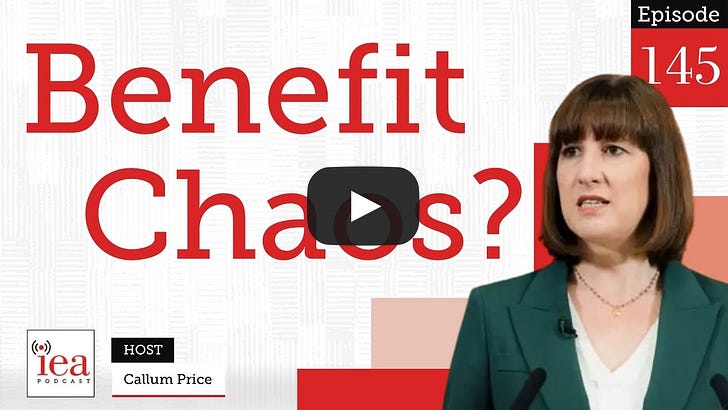
Employment Rights Bill risks stifling economic growth
Commenting on the new amendments to the Employment Rights Bill, Professor Len Shackleton, Editorial and Research Fellow at the free market think tank the Institute of Economic Affairs, said:
The Government's Employment Rights Bill may be well-intentioned, but it risks damaging businesses which are already under pressure and stifling economic growth, whilst hurting the very workers the bill intends to protect. Today's amendments do not alter this.
The Government appears to have watered down its commitment to eliminating zero hour contracts, and it should still be possible to employ some workers on these arrangements. However, they will be increasingly hedged around with conditions so that firms will fear inadvertently creating obligations which they did not intend, so we will probably see a lot less use of this type of arrangement. Zero-hours contracts are not for everyone, but they have offered opportunities to some groups of people that would not be able to work regular hours, including students, and people with caring commitments. At a time when we are all worried about falling economic activity rates, cutting some people off from contributing to the economy is foolish.
As for the changes to trade union law, I do not expect a massive increase in private sector recruitment though it seems likely that unions representing a small number of employees will have rather greater power. This may mean more strikes, but not necessarily: the threat of strikes is itself enough to boost bargaining power and induce employers to make higher pay offers - which may be inflationary and/or discourage the expansion of employment. Unions will be better able to resist change - for example on the railways, where the productivity record is already abysmal and there is chronic overstaffing in some areas.
The right to access physical workplaces to attempt to recruit union members would necessarily be limited in the frequency union officials could organise this but 'digital access' is a whole new ball game. It could involve relentless emails to staff. The template for access, presumably to be produced by Acas, will need careful watching,
Given that it will now be a case of having to opt out of the political levy on union members (rather than opt-in), the further amendment to remove the requirement for a renewal ballot looks like it will permanently give unions a much larger pot to play with.
The extension of the ballot mandate from 6 to 12 months, without requiring unions to submit pay offers to members, is likely to extend strike action.
E-balloting and repeal of the turnout requirements will increase the likelihood of strike mandates and boost the power of officials."
Read Len’s full analysis in CapX
See coverage in the Daily Mail
News, Views & Upcoming Events
What does the Institute of Economic Affairs believe? Just ask Tom Clougherty on GB News
“Portraying zero hour contracts as purely exploitative is entirely unfair and entirely untrue.” Reem Ibrahim discusses employment rights changes, BBC Radio 2
The Conservative Party will need to break from its past and truly embrace freedom if it wants to turn Britain around, Callum Price argues in ConservativeHome
The world is getting better! Callum Price interviews Cato and HumanProgress.org’s Marian Tupy, IEA YouTube
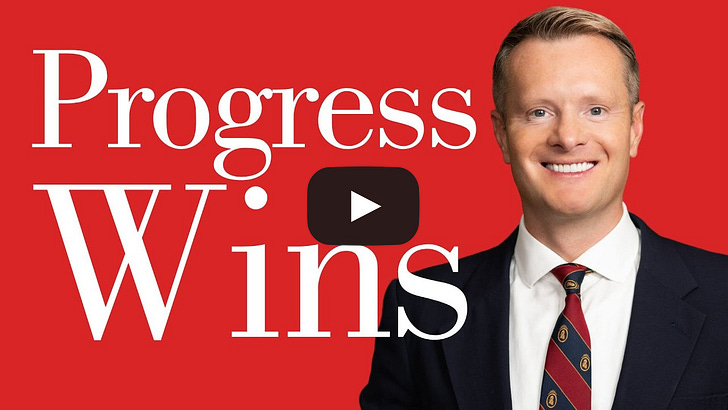
“This isn’t about cutting benefits - it’s about tightening eligibility, stopping people from gaming the system.” Tom Clougherty was on GB News to discuss rumoured cuts to welfare spending, X
What development economics gets wrong, Managing Editor Daniel Freeman speaks to Karthik Tadepalli, IEA YouTube
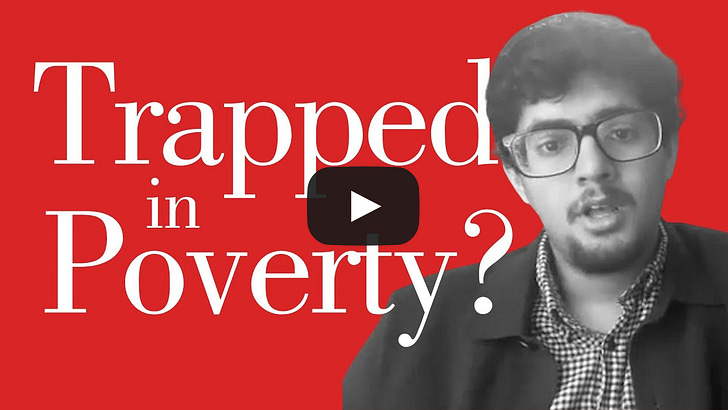
You’re currently a free subscriber to Insider. For the full experience, upgrade your subscription.
Paid subscribers support the IEA's charitable mission and receive special invites to exclusive events, including the thought-provoking IEA Book Club.
We are offering all new subscribers a special offer. For a limited time only, you will receive 15% off and a complimentary copy of Dr Stephen Davies’ latest book, Apocalypse Next: The Economics of Global Catastrophic Risks.
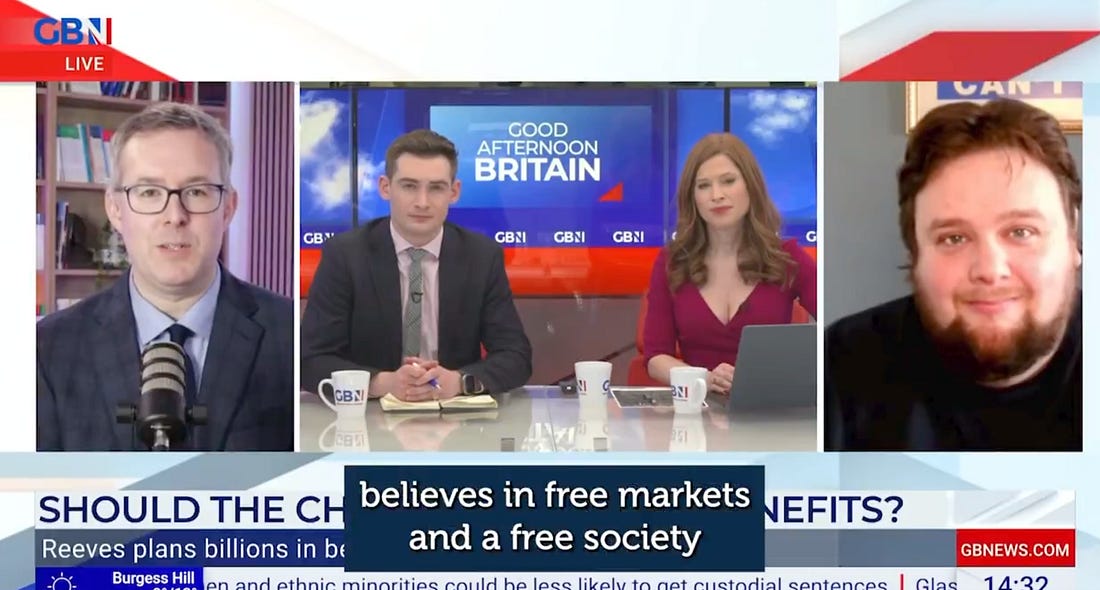
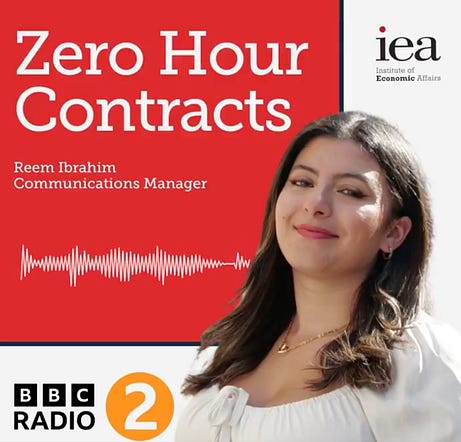


![[INVITATION] Not Invented Here](https://substackcdn.com/image/fetch/w_1300,h_650,c_fill,f_auto,q_auto:good,fl_progressive:steep,g_auto/https%3A%2F%2Fsubstack-post-media.s3.amazonaws.com%2Fpublic%2Fimages%2F8a6321e0-fe77-45a1-b638-e0b31a4b8112_1920x1080.jpeg)
![[INVITATION] IEA In Conversation with Mario Rizzo](https://substackcdn.com/image/fetch/w_1300,h_650,c_fill,f_auto,q_auto:good,fl_progressive:steep,g_auto/https%3A%2F%2Fsubstack-post-media.s3.amazonaws.com%2Fpublic%2Fimages%2Ff1b0f43d-61f6-4293-94b9-f4e48b4df388_1920x1080.png)